Israel, US Should Take On Iran Directly, Ex-Israeli Premier
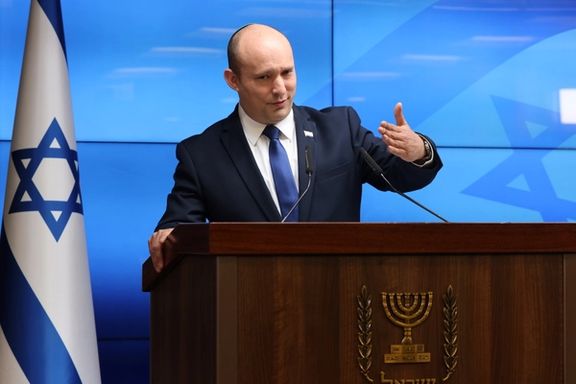
Former Israeli Prime Minister Naftali Bennett has called for Israel and the US to confront Iran directly, ‘making it pay’ for sowing chaos through its proxy militias.

Former Israeli Prime Minister Naftali Bennett has called for Israel and the US to confront Iran directly, ‘making it pay’ for sowing chaos through its proxy militias.
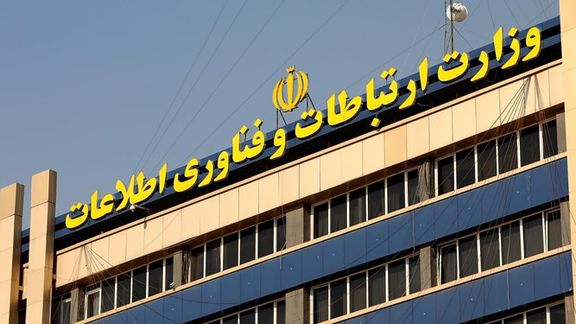
The Iranian government has allowed providers to raise internet service rates by about 34 percent to compensate for a persistent inflation rate of 50 percent.
State media in Iran announced the tariff increase after weeks of speculation about a price hike of as high as 100 percent.
Iran has a vibrant ecommerce sector, that might face losses because of higher Internet rates, which could also push overall inflation higher.
Minister of Communications and Information Technology, Issa Zarepour, had hinted at the possibility of an impending internet tariff hike during a government meeting earlier in the month.
This price surge comes as Iran has some of the strictest internet access regulations globally, with users experiencing low-quality connections and being forced to pay for expensive Virtual Private Networks (VPNs) and anti-filtering software to avoid the censorship imposed by the government.
The authorities in the Islamic Republic have extensively blocked many messaging apps, social media networks, and websites. They are also in the process of establishing a "National Internet," similar to China. Internet restrictions tend to intensify during widespread protests in the country.
Mohammad-Javad Azari-Jahromi, the former Communications Minister, expressed concerns, saying, "The result of the price hike is apparently clear; the end of this spiral will lead to securing the economic interests of satellite internet providers and widening the [political] gap between the people and the government."
Last week, Faraz Daily reported that Internet companies in Iran had petitioned the government to increase their broadband and mobile tariffs by 100 percent.
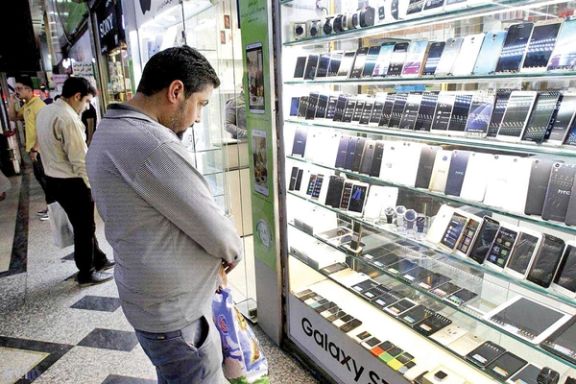
Iran’s government has required all cell phone importers to obtain a formal letter of representation from foreign manufacturers, risking a market shortage.
The latest move will force people to buy and use Chinese and Iranian cell phones, likely also to cause a monopoly for certain importers with strong lobbying power amidst Iran's global sanctions, and in turn, raising prices.
Peyvast, an Iranian monthly periodical covering the latest developments in information and communication technologies, reported that six years ago, the Iranian government aimed to make a similar decision by conditioning the importation of cell phones on obtaining an official permission from their foreign producers. However, at that time, Tehran decided that such a policy would not be feasible due to international sanctions.
It is not clear what has encouraged the Islamic Republic officials to revive their former plan as both sanctions and the unwillingness of the main cell phone manufacturers to trade with Iran are still in place. The tech website “Sakhtafzar Mag” took to task the ministry’s decision, saying it can have “heavy consequences for the cell phone market” in Iran.
By removing “different layers” of the market, this law runs the risk of undermining competition and after-sales services, Sakhtafzar Mag warned.
Zoomit, an online tech and gadget magazine, noted that as a result of the government’s new importation policy, the cell phone market in Iran may become similar to the country’s car market where overpriced Chinese productions abound with unsatisfactory after-sales services.

The publication warned that Iran has turned into a monopolized market for Chinese brands after the Islamic Republic forbade the registration of iPhone 14 & iPhone 15 in an alleged attempt to retaliate US bans and to prevent foreign currency from leaving Iran.
According to the magazine, after the ban on iPhone and the inability of a large part of the Iranian population to buy Samsung products over their high prices, Chinese brands such as Huawei, Xiaomi, Realme, Oppo, OnePlus and ZTE are taking control of the market.
The government’s bans on the registration of iPhone and its propaganda to show iPhone users as luxurious and “west-stricken” run counter to the fact that many of high-ranking Iranian officials and their children use the American brand. Last year, the photo of slain Quds Force Commander Qasem Soleimani’s daughter holding the latest iPhone 13 led to a storm of criticism that overshadowed the second anniversary of her father’s death.
Hundreds of social media posts scorned Soleimani for brandishing a phone that costs more than ten times the monthly salary of an ordinary worker in Iran while the Islamic Republic bases its propaganda on Qasem Soleimani’s modest lifestyle.
The government has already spent millions of dollars on the production of Iranian cell phones, causing concerns over safety and security in a regime where internet restrictions and surveillance have become commonplace.
According to reports, the Islamic Republic follows China’s lead in systematic oppression techniques as China’s large-scale efforts to control the internet has become a viable conceptual and technical model for authoritarian regimes.
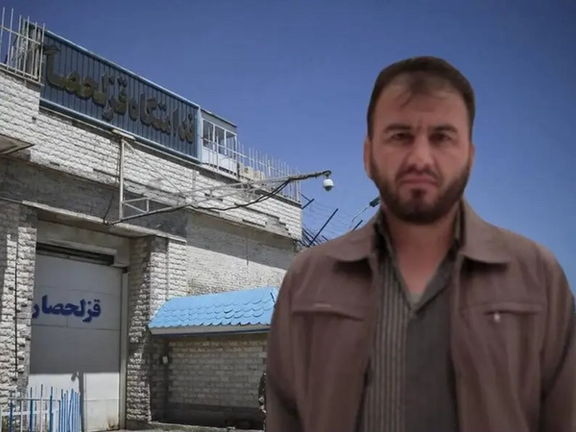
Davoud Abdollahi, a Sunni prisoner sentenced to death, has been transferred to solitary confinement in Karaj near Tehran, a sign of imminent execution in Iran.
Abdollahi was moved to solitary confinement on Tuesday, heightening anxiety among his family and loved ones in light of his death sentence.
The Hengaw Human Rights Organization, a Kurdish rights group, expressed deep concern over the transfer and the imminent danger of his execution, calling for an "immediate halt to this action and a review of his case in line with international standards of justice."
Abdollahi was among a group of seven Sunni prisoners who were detained in 2009 and were transferred to the detention center of the intelligence agency in Urmia (Orumiyeh) City. They were transferred to Tehran several months later. They were tried in 2015, and subsequently sentenced to death. These sentences were confirmed by the Supreme Court in 2020, after years of legal battles. Two of Abdollahi’s co-defendants, Ayub Karimi and Qasem Abasteh, were hanged in November.
The charges against them include "War against God," "corruption on earth," "support for Salafi groups," and the alleged "murder" of Abdolrahim Tina, who was killed by unidentified assailants in September 2008. However, in letters published by human rights organizations in recent years, the accused consistently denied these accusations.
Ahmadreza Haeri, a political prisoner, wrote from prison, "The entire trial did not last more than two minutes. Judge Moghiseh said first, you are a Kurd! Second, you are Sunni! Third, you have Salafi beliefs! These are the three reasons for the execution."
Iran has hanged nearly 750 people this year alone, according to the latest report by the US-based Human Rights Activists News Agency (HRANA).
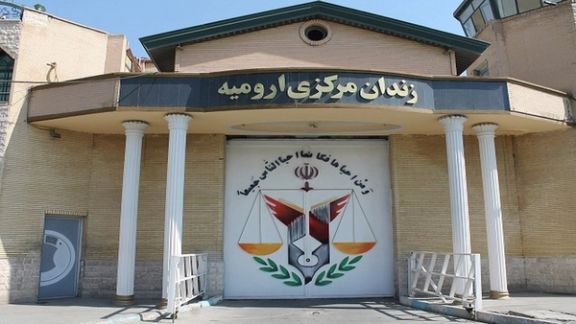
Iran executed four individuals arrested last year for “collaborating with Israel” and allegedly involved in acts of sabotage, the Judiciary announced on Friday.
Iran International reported on Thursday that these prisoners had been moved to solitary confinement, which usually signals impending execution for those on death row.
The Judiciary said Aran Omri, Rahman Parhazou, Vafa Hanareh, and Nasim Namazi were executed, while a fifth death row prisoner, Mansour Rasouli, who was also expected to be executed, was not mentioned.
The relocation of the individuals to solitary confinement occurred shortly after the reported killing of Razi Mousavi, a senior Revolutionary Guards commander, in an attack attributed to Israel in the Zainabiyya neighborhood of Damascus, Syria.
Some observers interpret the executions as potential retaliation by the Islamic Republic for the killing of Razi Mousavi. Mousavi played a crucial role in logistics and support for the Quds Force of the Revolutionary Guards, being one of the six senior commanders instrumental in the survival of Bashar al-Assad's regime and the consolidation of Hezbollah in Lebanon.
Families of the prisoners gathered outside the prison in Urmia, northwest Iran, Thursday night to demand a stay of execution.
The accused were tried in secrecy and except a brief announcement about their alleged crimes, no other details were released. Human rights monitoring groups say that the convicted prisoners had appealed their death sentence, but authorities ignored the legal process and carried out the death sentences.

Western powers condemned Iran on Thursday for “escalation” of its nuclear program, after the UN watchdog said Tehran had accelerated its high-grade uranium enrichment.
“Iran’s production of highly enriched uranium has no credible civilian justification,” France, Germany, Britain and the United States said in a statement, warning the Iranian regime that this measure “further aggravates the continued escalation of the Iranian nuclear program.”
Two days earlier, the International Atomic Energy Agency (IAEA) reported that Iran had “increased its production of highly enriched uranium, reversing a previous output reduction from mid-2023.”
The reduction in mid-2023 came about as part of a reported unwritten deal between the Biden administration and Iran. Releasing billions of frozen Iranian funds seems to have been part of that deal too –and also looking the other way as Iran exported oil to China in spite of sanctions.
The US government seems to have been hoping to contain the regime’s nuclear ambitions with leniency and good-will. Critics of the administration say President Joe Biden even “lied” to the Congress to avoid scrutiny and take his agreement over the line. The Administration denies all of this, of course, including the existence of a deal to begin with.
But whatever it was –deal, agreement, understanding– it began to crumble soon after October 7. Hostilities resumed and animosity once more took over after Hamas rampaged through Israel and Israelis began their onslaught of Gaza.
The IAEA report said Iran tripled its output of 60-percent enriched uranium in late November (from 3 kilograms a month to 9 kilograms). It had agreed to cap its production at 3 kg per month in June.
“These developments constitute a step in a bad direction on the part of Iran,” the US and EU3 noted in their statement. “These decisions show the absence of will on the part of Iran to engage in a de-escalation in good faith and result in irresponsible behavior in the context of regional tensions,”
Not surprisingly, Iran seems unmoved by the warnings.
“We have done nothing new and our activity is according to the regulations,” said the head of Iran’s Atomic Energy Organization, burying any hopes of going back to the levels of enrichment agreed with the Biden administration a few months ago.
All this comes amid growing fears of a conflagration in the Middle East, as Israel and the US face off Iran and its proxies from Yemen to Iraq to Lebanon.
Biden critics say his soft approach has emboldened Iran and its allied groups, who keep targeting US forces or interests in the region. Many believe the administration’s response to such attacks has been “token” strikes –with very little impact on attackers and almost no power of deterrence.
“Under Trump's maximum pressure campaign, we were able to crack down on many of Iran's terrorist capabilities,” Rep. Claudia Tenney said in an interview with Fox Thursday. “Yet, the Biden administration has allowed them to come back stronger than ever. The US must continue to put pressure on Iran and hold the IRGC accountable.”
On Wednesday, Senator Lindsey Graham of the Senate armed service committee lambasted President Biden and defense secretary Austin for “failing” US soldiers in the field, suggesting that IRGC positions inside Iran be bombed “to make it real to the Ayatollah, you attack a soldier through proxy, we're coming after you.”
“I've been saying [this] for six months now,” Graham said on Fox News Wednesday, “hit Iran. They have oil fields out in the open. They have a Revolutionary Guard headquarters you can see from space. Blow it off the map.”
In an op-ed published by the Wall Street Journal Thursday, Bennett, who was prime minister from June 2021 to June 2022, admitted that Israel was behind attacking an Iranian base and the assassination of a senior IRGC commander in 2022.
Calling on Israel and the US to topple the Iranian regime, he described the Islamic Republic as “the source of endless war, terror and suffering throughout the world.” He called it inexplicable that almost nobody is taking on Tehran, which has been “at the center of most of the Middle East’s problems and much of global terror.”
Israel rarely admits publicly to attacking Iran directly, but Bennett wrote, "After Iran launched two failed UAV attacks on Israel in February 2022, Israel destroyed a UAV base on Iranian soil. In March 2022, Iran’s terror unit attempted to kill Israeli tourists in Turkey and failed. Shortly thereafter, the commander of that very unit was assassinated in the center of Tehran."
Hassan Sayyad-Khodaei, a member of IRGC’ Quds Force, was the deputy commander of Unit 840 and in charge of its operations in the Middle East and countries neighboring Iran.
On December 25, a senior IRGC commander, Razi (Reza) Mousavi, was killed by an alleged Israeli airstrike in Syria, for whichwould pay a high price.
"The US and Israel must set the clear goal of bringing down Iran’s evil regime. Not only is this possible. It is vital for the safety and security of the Middle East—and the entire civilized world," Bennett concluded in his piece.